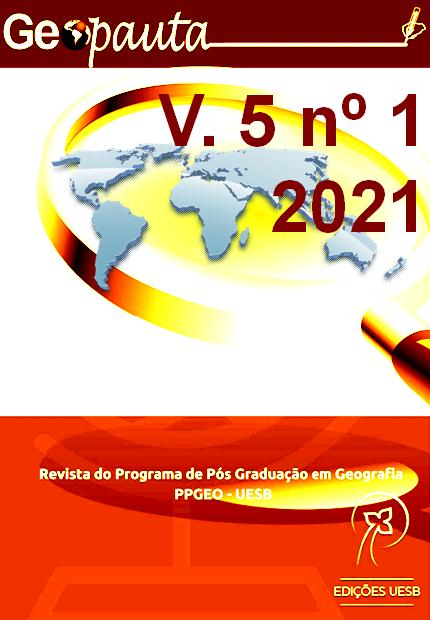Educational material about soil education: from academic production to extension actions in basic education
DOI:
https://doi.org/10.22481/rg.v5i1.7008Keywords:
Soil education , Teaching practices, Educational materialAbstract
This article presents results of research and extension on “Education in Soils” project that consists in knowing, instrumentalizing and propagating the theme, showing new ways of studying and evaluating soil teaching, especially in basic education. It also seeks to encourage the exchange of information and experiences between teaching and research institutions. The analysis of didactic resources / materials is carried out by the students, through visits, which are monitored in the Pedology and Erosive Processes in Studies Laboratory. After the visits, questionnaires are applied to the visitors, for the purpose of evaluating the products. This time, it is possible to verify the value of the didactic resources produced, as well as the positive involvement of the research target audience.
Downloads
Metrics
References
ANTUNES, C. Novas maneiras de ensinar - novas formas de aprender. Rio de Janeiro: Artmed, 2002.
COSTA FALCÃO, C. L. Programa de Educação em Solos: conhecer, instrumentalizar e propagar. In: Extensionando: cultivando saber na escola e na Universidade. Sobral: Edições Universitárias da Universidade Estadual Vale do Acaraú, 2014.
FREIRE, P. Pedagogia da autonomia. 34. ed. São Paulo: Paz e Terra, 1996.
KISHIMOTO, M. T. Jogo, brinquedo, brincadeira e a educação. 5. ed. São Paulo: Cortez, 2001.
LESPCH, I. F. Formação e Conservação dos solos. São Paulo: Oficina de Textos, 2002.
LIKERT, R. A technique for the measurement of attitudes. Archives of Psychology, 1932.
LIMA, V. C. et al. Projeto solo na escola: o solo como elemento integrador do ambiente no ensino fundamental e médio. Expressa Extensão: 7: 1-6., 2002.
MUGGLER, C. C.; SOBRINHO. F. A. P; MACHADO. V. A. Educação em Solos: Princípios, Teoria e Métodos. R. Bras. Ci. Solo, 30:733-740, 2006.
ROMANATTO, M. C. O livro didático: alcances e limites. In: ENCONTRO PAULISTA DE MATEMÁTICA, 7, 2004, São Paulo. Anais... São Paulo, 2004. Disponível em: <www.sbempaulista.org.br/epem/anais/mesas.../mr19-Mauro.doc>. Acesso em: 04 set. 2010. P. 1-11.
RUELLAN, A. Pedologia e desenvolvimento: a ciência do solo ao serviço do desenvolvimento. In: CONGRESSO BRASILEIRO DE CIÊNCIA DO SOLO, 1988, Campinas. Anais... Campinas: SBCS, 1988. p. 405-414.
RUELLAN, A.; DOSSO, M. L’analyse structural de la coverture pédologique: origenes et consequences. Regards sur le sol. Paris: Foucher, 1993.
SILVA, C. S.; COSTA FALCÃO, C. L.; FALCÃO SOBRINHO, J. O estudo do solo no livro didático de Geografia. Revista Homem Espaço e Tempo, Sobral, Centro de Ciências Humanas da Universidade Estadual Vale do Acaraú, ano 2, n. 1, 2008.
VÍDEOS de Programa Solo na Escola/UFPR. Projeto Solo na Escola. Paraná: Vímeo, c2017. Disponível em: <http://vimeo.com/user8999548/videos>. Acesso em: 12 fev. 2013.
VYGOTSKY, L. S. A formação social da mente: o desenvolvimento dos processos psicológicos superiores. 5. ed. São Paulo: Martins Fontes, 1994.
Published
How to Cite
Issue
Section
License
Copyright (c) 2021 from the Geopauta Journal and the Author(s)

This work is licensed under a Creative Commons Attribution 4.0 International License.
Copyright
Authors must retain unrestricted copyright and grant the Geopauta the first publication with the work simultaneously licensed under CC BY which allows others to share with recognition of each author's authorship in the initial publication in this Journal
Intellectual Property and Terms of Use
Geopauta adopts the Free Access policy in accordance with Open Access - OAC recommended by DOAJ and in accordance with the SciELO Criteria, under a Creative Commons CC By Attribution 4.0 International License, allowing immediate free access to the work and allowing any user to read, download, copy, distribute, print, search or link to the full texts of the articles, track them for indexing, pass them as data to software or use them for any other legal purpose.
Geopauta attributes the CC BY. license. where it is allowed without restrictions:
Share — copy and redistribute the material in any medium or format for any purpose, even commercial. as long as they give due credit for the original creation.
Adapt — remix, transform, and create from the material for any purpose, even commercial purposes, as long as due credit is given for the original creation.












